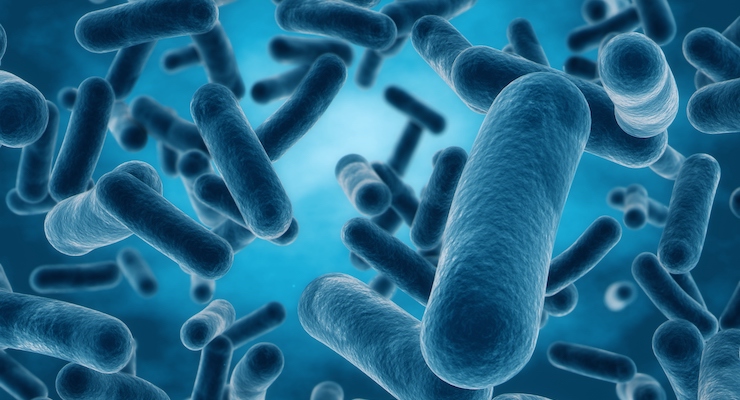01.05.22
Deerland Probiotics & Enzymes, a supplier of science-backed solutions for microbiome health recently acquired by ADM, announced that the U.S. Patent and Trademark Office has published its application for a distinct use of Deerland’s signature strain DE111 of the probiotic species, Bacillus subtilis DE111 based on human clinicals.
The patent application (US# 2021-315808 A1) titled “Bacillus subtilis containing composition for treatment of gastrointestinal irregularity” claims the use of B. subtilis strain DE111 for promoting GI and bowel regularity. Deerland envisions additional applications for supplements and functional foods/beverages claiming anti-fungal and anti-microbial properties that exert health benefits of gastrointestinal regularity, immune support and balancing of the microbiome.
The application, in part, describes, “As a component of the human microbiome, Bacillus subtilis may potentially have the ability to promote gastrointestinal health, including helping its host in digestion, making Bacillus subtilis a good candidate for probiotic compositions.”
The application summarizes studies of 30, 60 and 90 days in individuals with bowel irregularity who consumed B. subtilis, all resulting in measurable improvements. According to the application’s summary of invention, “the present disclosure relates to a method of [supporting] gastrointestinal irregularity in an individual, wherein the individuals has at least one 24-hour episode per month of bowel movements measuring 1 or 2 on the Bristol Stool Scale.” In the Bristol Stool Scale (or chart), out of 7 types, types 1 and 2 are difficult to pass and are indicative of constipation. The Bristol Stool Chart is a widely used tool for physicians to discern lower gastrointestinal function.
Bacillus subtilis is a spore-forming probiotic, which has the ability to protect itself through manufacturing and through digestion. B. subtilis DE111 has more than 30 studies (in vitro and human clinicals) demonstrating its effects on digestive and immune health in adults and children.
“This patent application underscores the safety and efficacy of B. subtilis, including DE111,” said John Deaton, vice president of science and technology at Deerland. “And it is timely, as according to Allied Market Research, worldwide, bowel irregularity is a common occurrence in up to 32.5% of the global population; and further, bowel irregularity and the discomfort it causes increases with age.”
CORRECTION: An earlier version of this news brief identified the pending patent application as an issued patent.
The patent application (US# 2021-315808 A1) titled “Bacillus subtilis containing composition for treatment of gastrointestinal irregularity” claims the use of B. subtilis strain DE111 for promoting GI and bowel regularity. Deerland envisions additional applications for supplements and functional foods/beverages claiming anti-fungal and anti-microbial properties that exert health benefits of gastrointestinal regularity, immune support and balancing of the microbiome.
The application, in part, describes, “As a component of the human microbiome, Bacillus subtilis may potentially have the ability to promote gastrointestinal health, including helping its host in digestion, making Bacillus subtilis a good candidate for probiotic compositions.”
The application summarizes studies of 30, 60 and 90 days in individuals with bowel irregularity who consumed B. subtilis, all resulting in measurable improvements. According to the application’s summary of invention, “the present disclosure relates to a method of [supporting] gastrointestinal irregularity in an individual, wherein the individuals has at least one 24-hour episode per month of bowel movements measuring 1 or 2 on the Bristol Stool Scale.” In the Bristol Stool Scale (or chart), out of 7 types, types 1 and 2 are difficult to pass and are indicative of constipation. The Bristol Stool Chart is a widely used tool for physicians to discern lower gastrointestinal function.
Bacillus subtilis is a spore-forming probiotic, which has the ability to protect itself through manufacturing and through digestion. B. subtilis DE111 has more than 30 studies (in vitro and human clinicals) demonstrating its effects on digestive and immune health in adults and children.
“This patent application underscores the safety and efficacy of B. subtilis, including DE111,” said John Deaton, vice president of science and technology at Deerland. “And it is timely, as according to Allied Market Research, worldwide, bowel irregularity is a common occurrence in up to 32.5% of the global population; and further, bowel irregularity and the discomfort it causes increases with age.”
CORRECTION: An earlier version of this news brief identified the pending patent application as an issued patent.




























